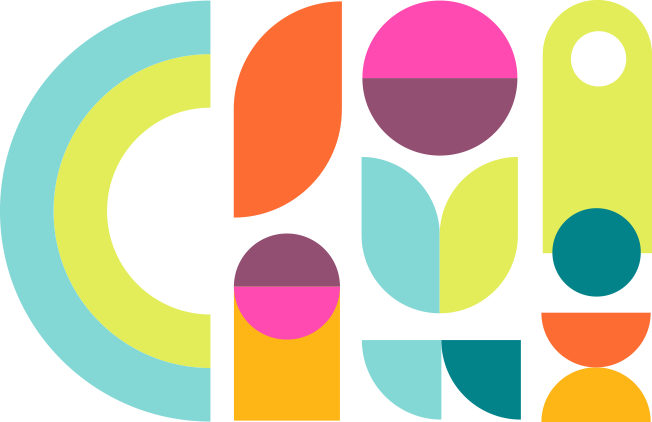In 2023-24, CICan worked with its members to help address Canada’s productivity challenges across several fronts.

Derisking and promoting technology adoption and innovation in small and medium-sized enterprise (SME) innovation
Through college-applied research, our members’ unwavering dedication to working in partnership and fostering technology adoption and innovation among SMEs underscores the pivotal role colleges and institutes play in amplifying Canada’s economic productivity and competitiveness. College-applied research is unique in that the needs of the business drive it, intellectual property remains with the business partner for commercialization, and it delivers results rapidly, often within a year. During our last survey period, CICan members reported 8,820 research partners, 62% of which are private SMEs.
CICan’s support of our members’ applied research activity is crucial to their collective success. In 2023-24, we conducted over 50 meetings with government officials to advocate for college-led research and innovation, successfully securing temporary funding for College Centers for Technology Transfer (CCTTs) and Technology Access Centers (TACs) in collaboration with Tech-Access Canada and Synchronex.
We also hosted in February 2024 our national Applied Research Symposium, which drew over 150 participants from the college innovation sector. This event highlighted the significant growth in college and institute research impact, spanning critical areas such as housing construction, advanced manufacturing, climate-smart agriculture, and social innovation. It was made abundantly clear that this impact, relevance, and reach directly translate into tangible benefits for Canadians, nurturing long-term productivity and sustainability across Canadian industries. The symposium also provided a platform for college research leaders across the country to think creatively about solutions, find shared purpose, and reimagine Canada’s research and innovation programming through an impact lens.
We’re proud to share that the research intensity at colleges and institutes is increasing by nearly 30% each year. In real terms, this translates to more than 8,000 applied research projects in the 2021-2022 period. These partnerships amounted to 6,500 new processes, products, prototypes and services that resulted from these projects (80% of which were completed in less than a year).

This remarkable growth and breadth in college-led research activity has had a direct impact on the sustainability of Canadian SMEs, ensuring that they remain competitive and innovative. Through these efforts, and with CICan’s diligent work advocating for increased support and recognition at a national level, colleges and institutes are significantly contributing to enhancing the long-term productivity and economic health of Canada.
Breaking down barriers to employment and education for equity-deserving groups
Enhancing productivity in Canada requires breaking down barriers to employment and education, particularly for equity-deserving groups. Recognizing this imperative, CICan brought together colleges and institutes over the past year through our Skills Compass initiative to help Indigenous and newcomer youth currently not in employment, education, or training (NEET) develop the skills and career readiness they need to return to school or prepare for a career.
Through Skills Compass, over 150 unemployed Indigenous and newcomer youth aged 18 to 30 received tailored education and skills training through our program, achieving an impressive 81% success rate. Seventy-one per cent of participants reported improvements in their life skills, enabling them to meet labour market needs and contribute to economic growth, and 59% of participants completed a Work Integrated Learning placement, gaining valuable hands-on experience to enhance their employability.

I shared my dream with my teachers of becoming a chef, and to create or modernize Indigenous recipes…I really do love the Skills Compass program. It provided an environment where I could create my goals and feel comfortable learning about my culture. I realized my full potential.
– Rayne Ryle-Coté, Red River College
The Skill Compass Curriculum Framework is a lasting resource to help colleges and institutes better tailor their programs to the unique needs of Indigenous and newcomer NEET youth students. The framework highlights key components that make programs relevant and accessible for NEET youth and serves as a guide to improve learning outcomes for more youth beyond the life of the program.
Newcomer integration into the workforce through targeted upskilling also addresses Canada’s productivity gap. Three thousand seven hundred immigrants benefited from CICan’s Planning for Canada‘s free pre-arrival services, which include valuable information to help newcomers clarify expectations and make informed decisions, personalized planning sessions with well-trained facilitators, and additional asynchronous online offerings.

Through Planning for Canada and [provincial placement partner], I was able to obtain helpful information about the immigration process, create a Canadian-style resume, receive information on prospective employers, and finally land a job as a Continuing Care Assistant.
– Romsty Santos, Santos immigrated to Canada from Japan in 2021.
Our Skills Enhancement for Newcomers program also helped newcomers to Canada develop the skills, knowledge, and practices unique to Canadian workplaces. The program introduced three new national microcredentials focused on Communication, Collaboration, and Adaptability to help nearly 950 newcomers enhance their existing professional and employability skills and ease their entry into the Canadian labour market.
Developing a globally skilled workforce
In light of Canada’s productivity challenges, skill gaps and the increasingly global nature of work, it is more important than ever that Canadians are equipped with the right mix of job-related and global competencies. Our Global Skills Opportunities program gives Canadian post-secondary students – particularly those who are often underrepresented in post-secondary education – the opportunity to participate in international learning experiences where they gain skills like the ability to communicate well, collaborate with others, and adapt to changing circumstances.
As of March 31, 2024, just under 9,000 students improved their global skills and competencies through Global Skills Opportunity-funded international work or study experiences across more than 100 countries. Close to half of participants were from CICan member institutions and 75% identified as underrepresented students, including 12% who identified as Indigenous.

In November, GSO students were the highlight of our CICan on the Hill advocacy event, where attendees heard from the GSO participants to better understand the impact of those learning experiences on their lives. We continue our advocacy efforts to sustain the program beyond 2025.
Strengthening Gender-Responsive Education & Training around the World
In Tanzania, our work strengthening alternative pathways to education, employment, self-employment and entrepreneurship for women and adolescent girls continued through our Empowerment Through Skills Program (ESP). By enhancing the skills and capacities of women and girls, ESP directly increases their potential to contribute to future economic growth and productivity.
In particular, we are proud to have developed National Safeguarding Guidelines for Folk Development Colleges and Vocational Education Training Colleges in collaboration with the Tanzania Ministry of Education Science and Technology and consultation with Tanzania institutions. These guidelines outline how institutions can prioritize the safety and well-being of college students and trainees, particularly women, youth, and people with disabilities. They also help institutions create a gender-responsive enabling environment, thereby encouraging inclusive economic participation in the country.
We also shared a new Gender Policy Resource and Guiding Principles last year to support members in their international work and maximize our global investment in women. The policy supports the transformation of unequal power relations based on gender and other identities with the goal of achieving gender equality and inclusion in education, employment, and entrepreneurship.
